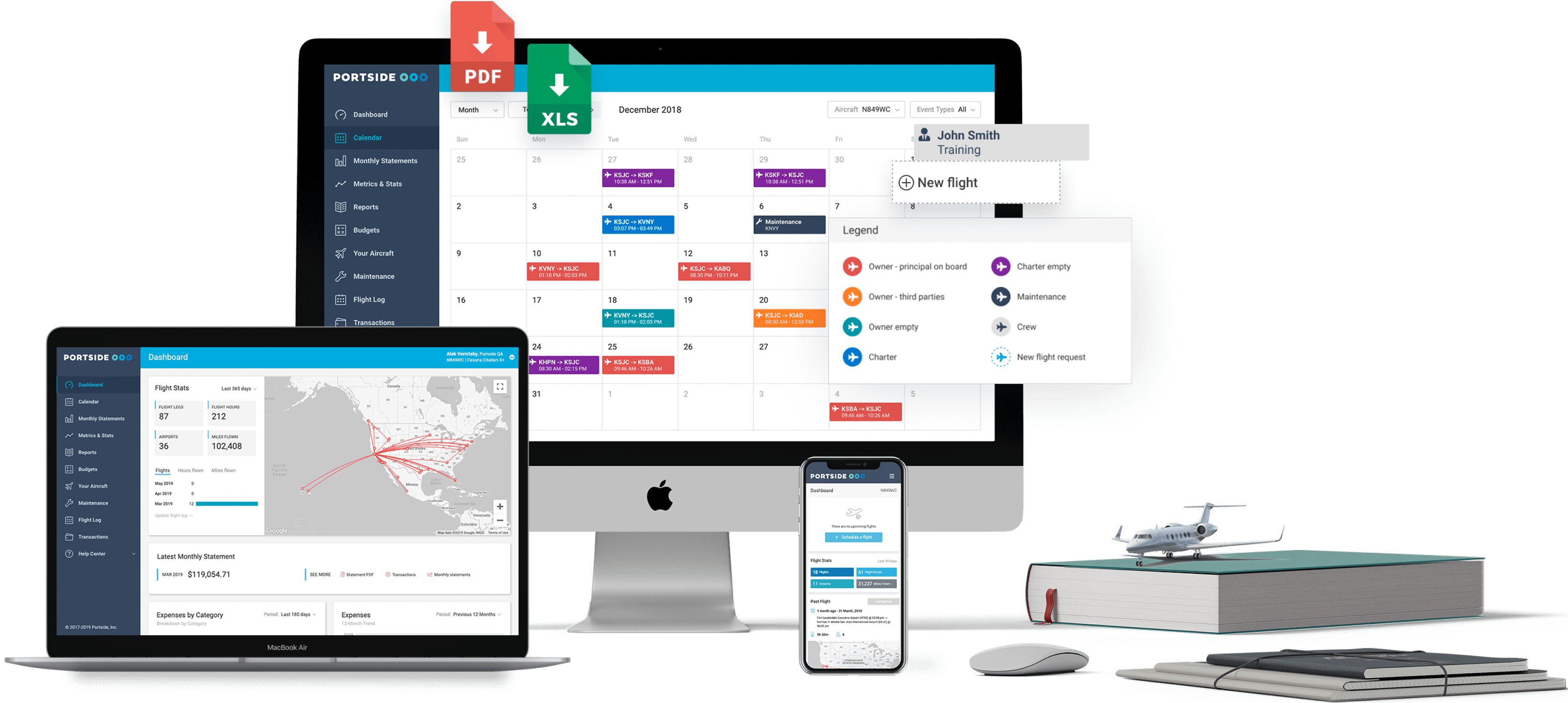Business aviation operators are often challenged with crew and aircraft shortages as they look to scale and meet the growing post-pandemic demand for air travel. With industry-wide staffing shortages, operators need to figure out how to attract pilots and other crew members — whether it be to fill full-time vacancies or add temp positions to meet urgent scheduling needs.
Inspired to build a tech-forward solution, Alek Vernitsky and Alek Strygin co-founded Portside, which allows aircraft operators to share schedules, financial and maintenance data, and other key aircraft information with owners, banks and insurance companies through a web-based portal. Portside today announced that it raised $50 million in a Series B funding round led by Insight Partners with participation from existing investors including I2BF Global Ventures, bringing the company’s total raised to more than $70 million.
Portside is Vernitsky and Strygin’s second venture after tour agency startup GetGoing, which they sold to business travel management firm BCD Travel in 2016. Vernitsky was previously head of product at thredUp and for years was an SVP at BCD Travel (as was Strygin) following the GetGoing acquisition.
“Portside provides an integrated platform and strives to be a one-stop shop for flight departments,” Vernitsky told TechCrunch via email. “As operators scale, they need to capture efficiencies through technology. Portside’s product suite gives them the ability to streamline workflows while making the best use of their aviation assets.”

Image Credits: Portside
To this end, Portside provides tools to automatically allocate crew and aircraft depending on a given schedule and standardize how business aviation trips are reported. Portside’s staffing marketplace gives employers access to a database of pilot and crew while a dedicated services app helps manage crew accommodations. Beyond this, Portside maintains an operations management portal that helps schedule and dispatch government, corporate and charter flights using existing aviation systems.
“Business aircraft are now more capable than ever in terms of flying more people over longer distances, which means many more trips are now international, and more complex from a logistics and regulatory perspective,” Vernitsky continued. “Having an integrated system that combines operational, financial and maintenance data is now paramount for a successful trip.”
Business has been quite good, Vernitsky said — even during the pandemic. It helps that business aviation as a market is expanding at a rapid clip. A Honeywell survey released last October forecasts up to 8,500 new business jet deliveries worth $274 billion from 2023 to 2032, up 15% in both deliveries and expenditures from the same 10-year forecast a year ago. Another poll — this one from from Airbus — found that 89% of businesses with annual revenue of over $500 million plan to increase their use of business aviation in 2023.
Why the robust growth? The Airbus poll provides some insight. Eighty-one percent of respondents said that they became increasingly reliant on business aviation during the pandemic while 63% cited continued expected problems in the commercial aviation sector, such as flight delays and cancellations.
Whatever the reason, Portside has certainly benefited. The company claims to support almost 1,000 operators of private, business and government aircraft today in over 30 countries. There’s over 10,000 aircraft on the Portside platform, Vernitsky claims, and over 50,000 users.
“Business aviation grew tremendously during the pandemic, and Portside grew about 3x per year over the past few years. Business aviation is continuing to grow, and we intend to continue developing innovative products for the industry,” Vernitsky said.
Vernitsky says that the capital from the latest funding round will be put toward software development and “further expanding” Portside’s customer base and product portfolio. The startup employs 110 people currently and expects to grow to 150 by the end of the year.
Portside lands $50M to help manage business aviation by Kyle Wiggers originally published on TechCrunch









